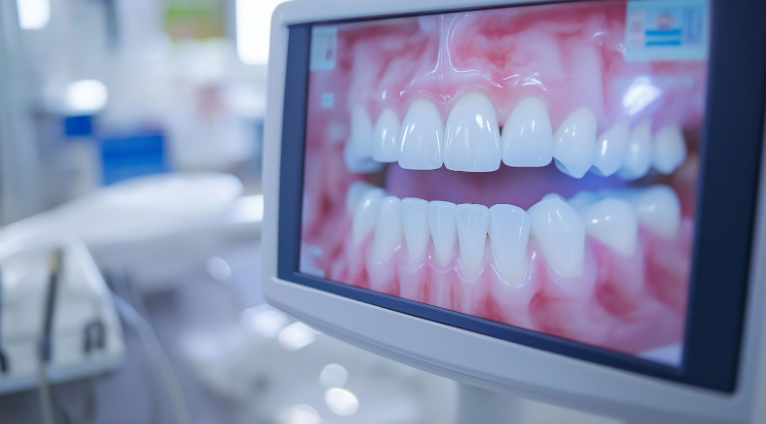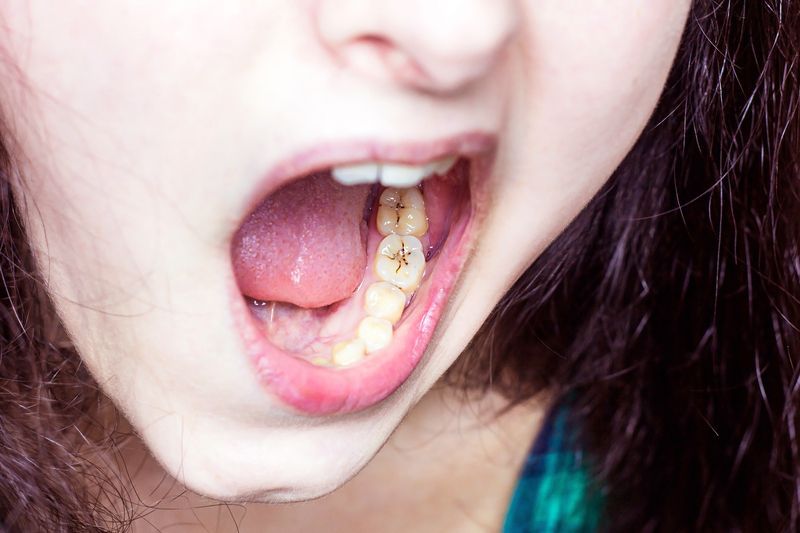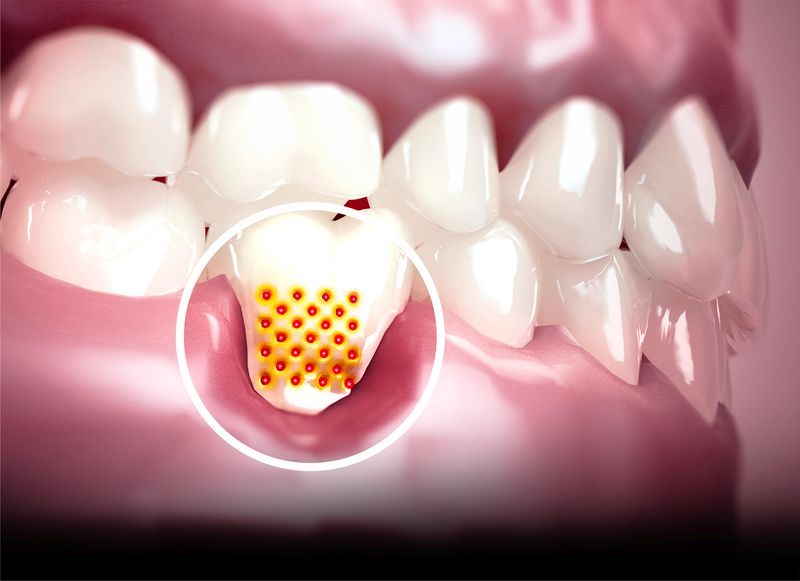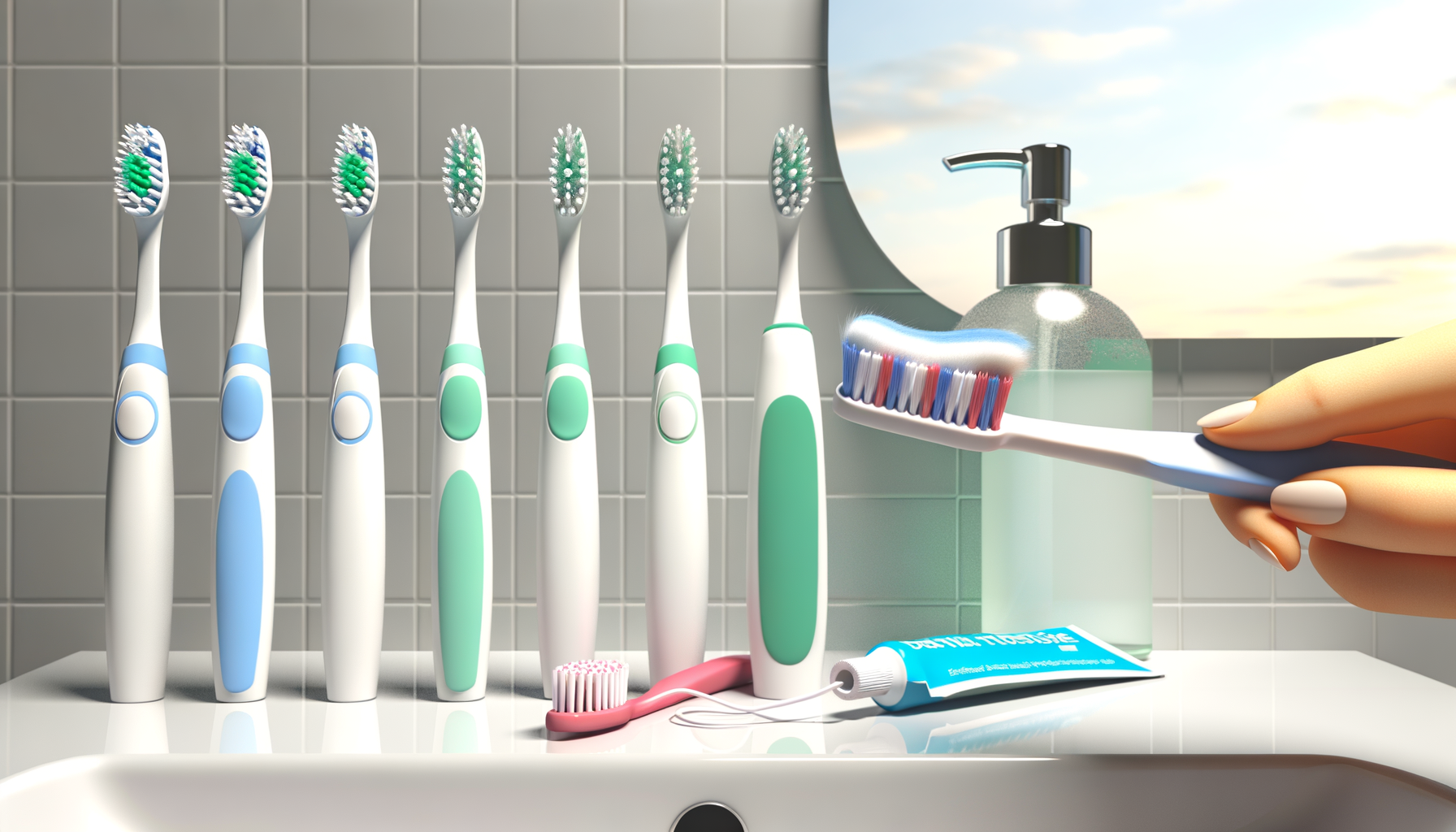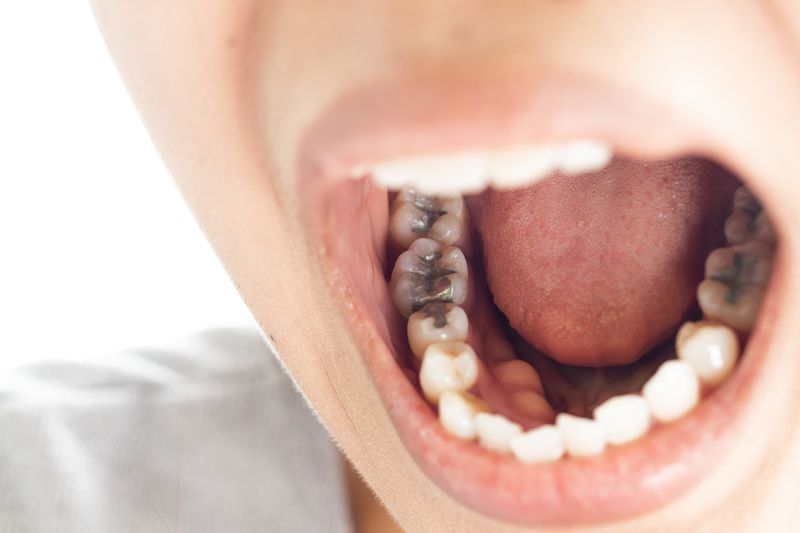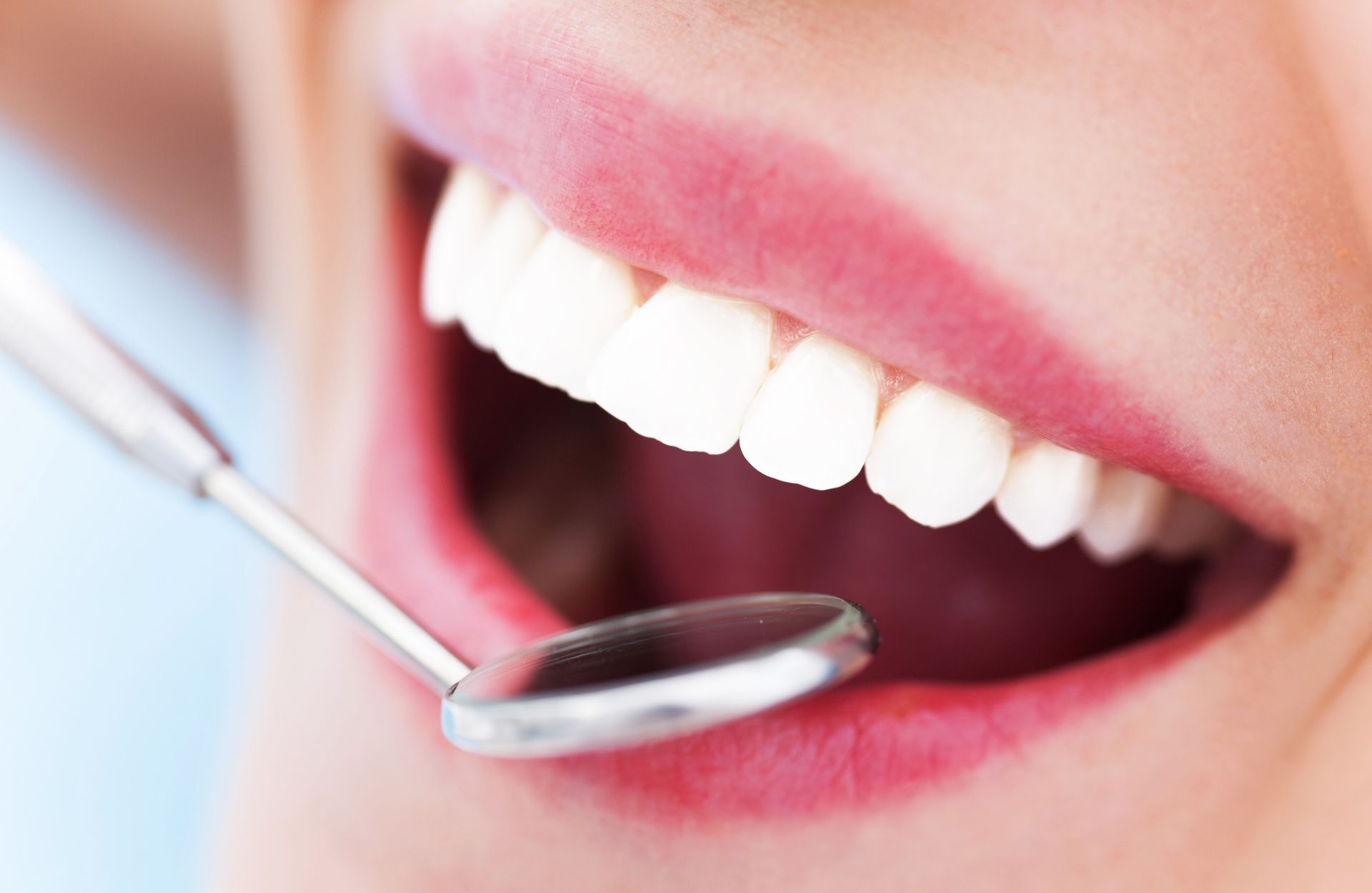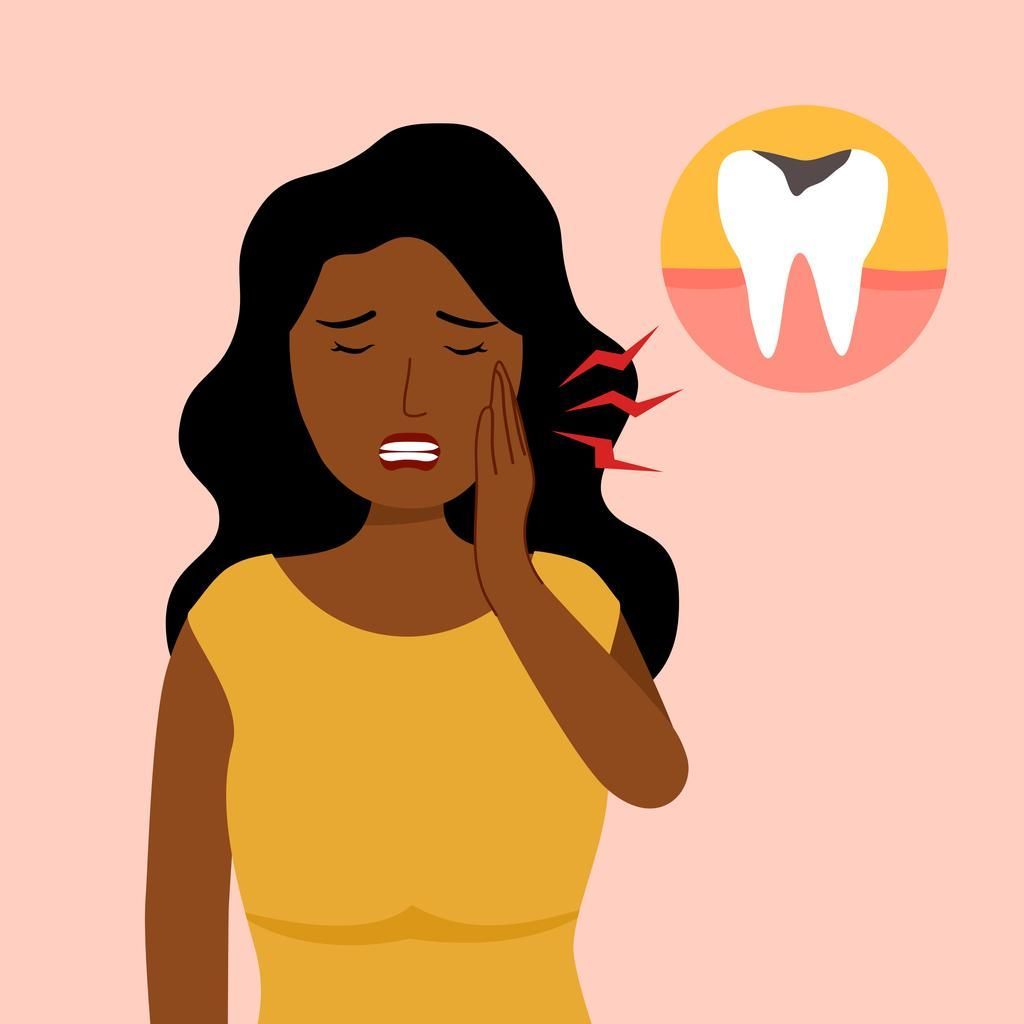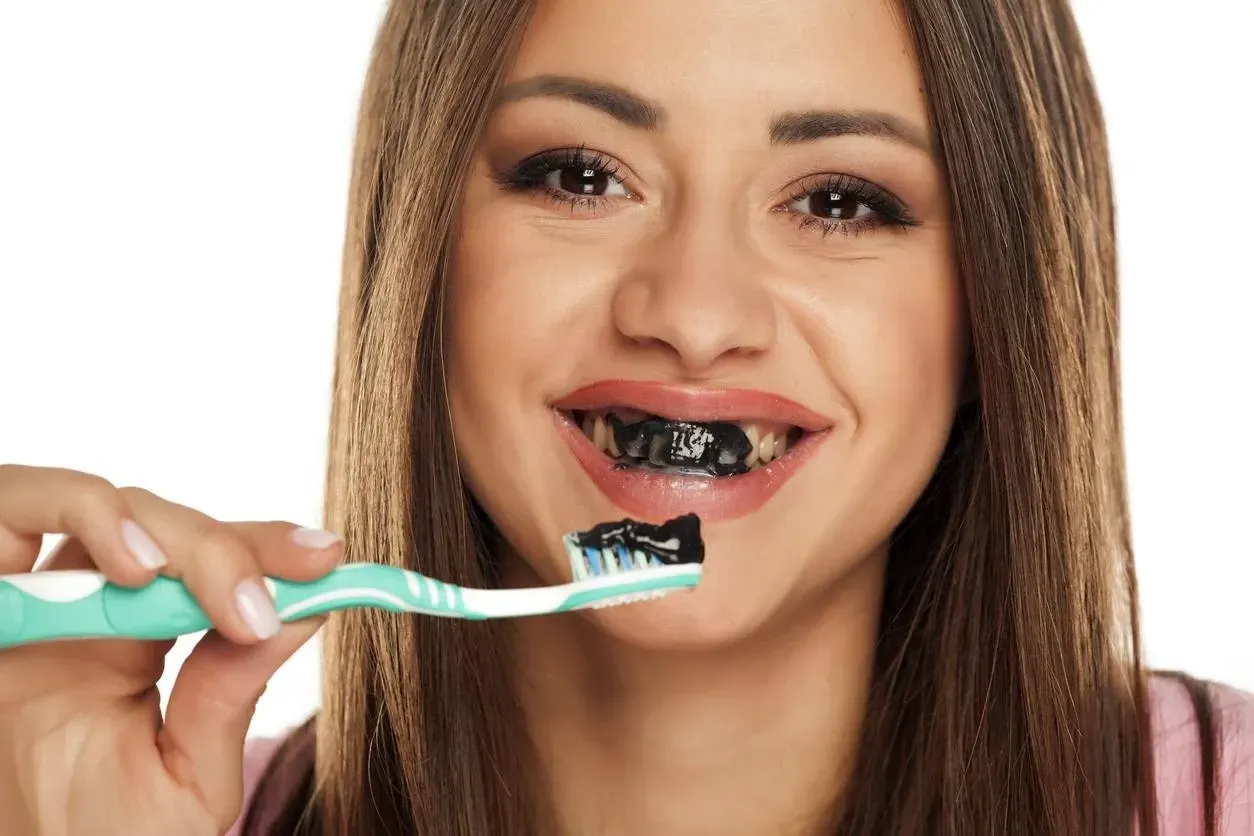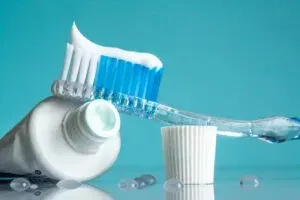Blog
Blog

March 4, 2025
Cosmetic dentistry continues to evolve, offering new ways for Evanston residents to enhance their smiles and, in turn, boost their self-confidence. Not only do these solutions address issues like stains, chips, and misalignment, but they can also provide an emotional uplift by helping people feel more comfortable speaking and laughing in social settings. As technology and techniques advance, many individuals are discovering that achieving a radiant smile is both accessible and rewarding. Below, we explore the latest trends in cosmetic dentistry and how they are making a positive impact in Evanston. The Growing Popularity of Teeth Whitening Teeth whitening remains one of the most sought-after cosmetic dentistry treatments today. According to the American Academy of Cosmetic Dentistry , teeth whitening procedures account for a considerable portion of cosmetic dental treatments performed in the United States. Demand in Evanston is no exception—residents often look for ways to brighten their smiles, whether it’s for a special event or simply to feel more confident in everyday life. A common misconception is that all whitening treatments are essentially the same. However, technological advances have yielded various methods, ranging from at-home whitening kits to professional in-office treatments. In a dental office environment, the use of professional-grade whitening agents can help achieve more consistent and longer-lasting results. Most dentists also offer custom-made trays that ensure comfort while minimizing gum irritation, making the entire whitening process more pleasant and effective. Those who prefer a slower approach often opt for take-home trays in conjunction with in-office consultations, balancing convenience with professional guidance. Achieving Glamorous Smiles With Veneers and Bonding Another fast-growing trend in the field is the application of veneers and bonding. These techniques are particularly popular among those looking to cover chipped, misshapen, or severely stained teeth. Veneers—thin porcelain shells custom-made to fit over the surface of teeth—can dramatically transform a smile’s aesthetics. What’s more, newer generations of porcelain materials often replicate the translucent qualities of natural teeth for a more authentic appearance. Bonding, on the other hand, relies on tooth-colored resin to fix minor imperfections like small gaps or cracks. It can be an ideal solution for individuals who prefer a less invasive approach or have budget considerations in mind. Because bonding typically requires fewer visits and less enamel reduction, it can be a quick option for those who want to refresh their smiles in a shorter timeframe. Regardless of the chosen method, both veneers and bonding can rejuvenate a person’s overall appearance and produce results that are imperceptibly similar to real tooth enamel. Modern Orthodontics for All Ages Gone are the days when orthodontics was reserved for children and adolescents. Advances in braces and aligner technology have made it easier for people of all ages to achieve straighter teeth. The American Association of Orthodontists cites an increase in adult orthodontic patients over recent years, indicating that it’s never too late to tackle mild to moderate alignment issues. Clear aligners, in particular, have gained considerable traction, appealing to adults in Evanston who value discretion. These transparent trays gradually shift teeth into their desired positions with minimal impact on day-to-day activities. They’re removable, simplifying oral hygiene and mealtimes. Many patients find the flexibility and near-invisibility of aligners an attractive alternative to traditional braces. Whether you opt for clear aligners or other contemporary orthodontic solutions, the outcome often extends beyond a straight smile, contributing to improved bite function and overall oral health. The Psychological Benefits of a Confident Smile Cosmetic dentistry doesn’t just enhance a person’s physical appearance—it can significantly influence emotional well-being as well. Confidence in one’s smile often translates to greater poise in personal relationships and professional settings. Simple actions like talking, laughing, and taking photographs become enjoyable rather than anxiety-inducing. Academic research on the connection between oral health and self-esteem consistently highlights how a healthy smile can serve as an emotional anchor, promoting a positive self-image. This is especially relevant in communities like Evanston, where social ties are strong, and occasions to connect with neighbors, colleagues, and friends are frequent. Beyond aesthetics, cosmetic treatments can motivate patients to adopt healthier daily hygiene habits. Many individuals who invest in whitening or orthodontics take proactive steps to maintain their results, such as improving brushing techniques or scheduling professional cleanings more regularly. This ripple effect often benefits overall oral health, reducing cavity rates and lowering the risk of gum disease. Embracing Evanston’s Unique Dental Culture Evanston’s local community places a high value on health and wellness, and cosmetic dentistry aligns well with these priorities. Many local dentists focus on patient education, ensuring that anyone considering a cosmetic procedure understands the process, potential benefits, and realistic outcomes. Because Evanston is part of the larger NorthShore region, residents often share resources and recommendations with neighboring communities, creating a collaborative environment for exploring new cosmetic dental options. Word-of-mouth testimonials, especially in a close-knit town, can influence someone’s choice of treatment. While it’s important to weigh professional opinions, peer recommendations often provide additional reassurance for those unsure about committing to a cosmetic dental procedure. Fortunately, Evanston’s healthcare culture holds trusted relationships in high regard, making it a place where residents can feel comfortable discussing their concerns and goals with their dentists. Ready to Transform Your Smile? Cosmetic dentistry has moved far beyond mere appearance-driven procedures; it’s about investing in your well-being and presenting your best self to the world. Whether you’re considering teeth whitening, veneers, bonding, or advanced orthodontics, there’s an approach designed to meet your unique needs as an Evanston resident. If you’re looking to explore the best cosmetic dentistry options for your smile, contact us at Stephens Dentistry. Our team provides individualized guidance tailored to your goals, ensuring that every step you take toward enhancing your smile aligns with your comfort and values. For more insights into other dental services, take a look at our services pages and learn how you can keep your teeth healthy, bright, and ready to shine in Evanston.
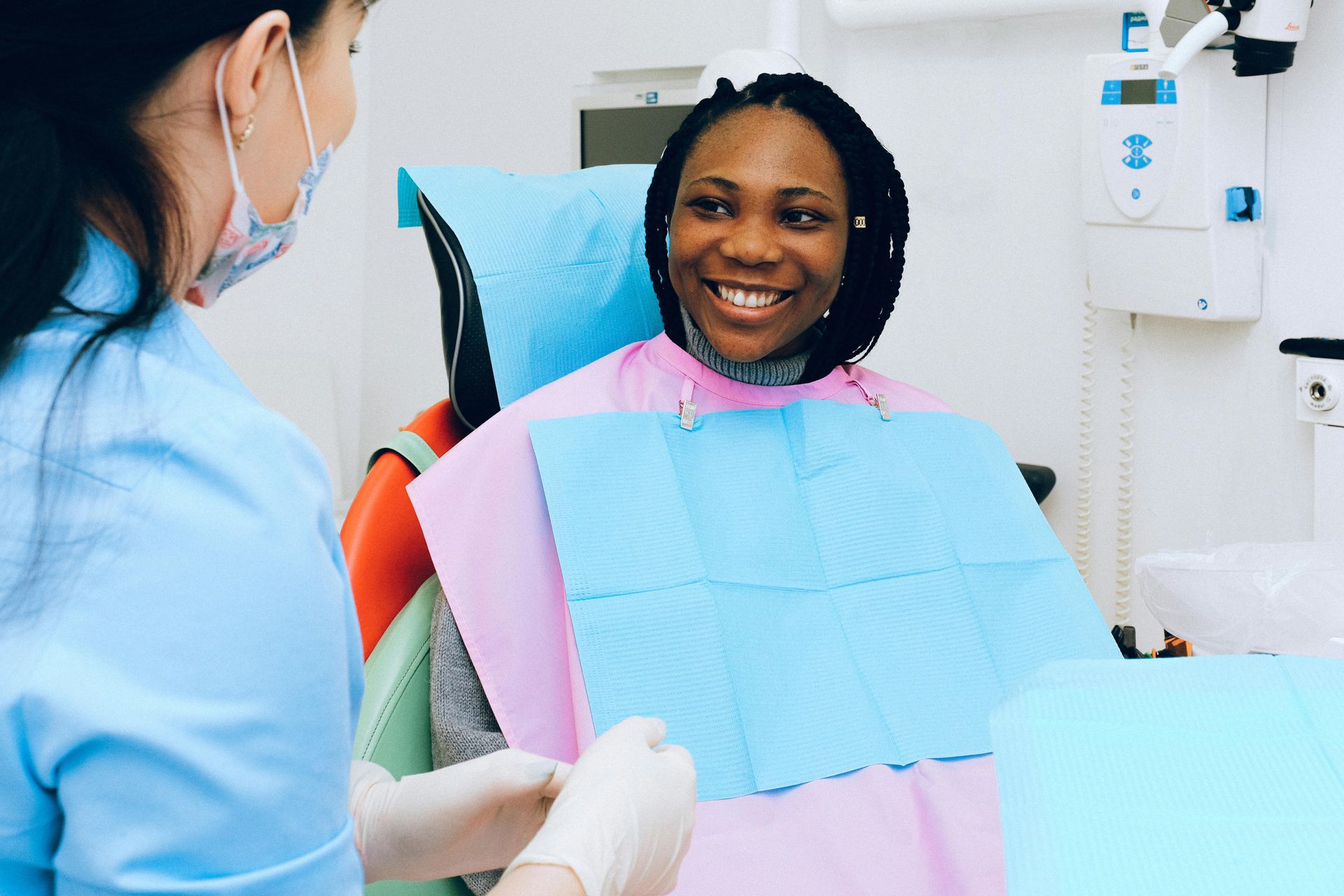
February 4, 2025
Preventative dental care is a proactive approach to maintaining oral health by preventing diseases and addressing potential issues before they become serious. It involves regular dental check-ups, cleanings, and other preventive measures that help keep teeth and gums healthy. This form of care is essential as it allows for early detection of dental problems, which can prevent more severe conditions such as gum disease and tooth decay. Regular check-ups can identify issues like cavities, misalignment, and oral cancer at an early stage, making them easier and less costly to treat. The economic benefits of preventative dental care are significant. By addressing issues early, patients can avoid expensive treatments in the future. A study published by the American Dental Association highlights that investing in preventative care can lead to substantial cost savings over time. Routine Cleanings: A Cornerstone of Oral Health Routine dental cleanings are vital for removing plaque and tartar buildup that cannot be eliminated by regular brushing and flossing alone. These cleanings play a crucial role in preventing gum disease and tooth decay. During a cleaning, dental hygienists use specialized tools to clean areas that are difficult to reach with a toothbrush, ensuring a thorough cleanse of the oral cavity. Dental professionals generally recommend that individuals have their teeth cleaned every six months, although this frequency may vary based on individual needs and risk factors. According to Dr. Marcos Montoya of Stephens Dentistry, "Regular cleanings are an essential part of maintaining oral health. They help prevent serious dental issues and keep your smile bright and healthy." The Role of Sealants and Fluoride Treatments Dental sealants and fluoride treatments are effective preventative measures that protect teeth from decay. Sealants are thin, protective coatings applied to the chewing surfaces of the back teeth, where decay often starts. They act as a barrier, preventing food particles and bacteria from settling into the grooves of the teeth. Fluoride treatments involve the application of fluoride to the teeth to strengthen enamel and make it more resistant to decay. These treatments are beneficial for both children and adults, particularly those with a higher risk of cavities. According to the Centers for Disease Control and Prevention , fluoride is highly effective in preventing cavities. Tips for Maintaining Oral Hygiene at Home Maintaining oral hygiene at home is crucial for overall dental health. Daily practices such as brushing twice a day and flossing once a day are fundamental. Using tools like electric toothbrushes and water flossers can enhance cleaning by reaching areas that traditional brushes might miss. A balanced diet also plays a significant role in supporting oral health. Foods rich in calcium and phosphorus, such as dairy products and leafy greens, help strengthen teeth. Conversely, limiting sugar intake and avoiding smoking can prevent decay and gum disease. Lifestyle habits have a profound impact on oral health. Smoking and excessive sugar consumption can lead to serious dental issues, including cavities and periodontal disease. By adopting healthy habits, individuals can significantly reduce their risk of dental problems. Common Misconceptions About Dental Prevention Several misconceptions surround dental prevention. One common myth is that only sugary foods cause cavities. While sugar is a major contributor, acidic foods and poor oral hygiene can also lead to decay. Another misconception is that dental visits are unnecessary if there is no pain or visible issue. Regular check-ups are essential for detecting hidden problems that may not yet cause discomfort. Some individuals believe that home remedies can replace professional treatments. While good home care is important, it cannot substitute for professional dental services. Personalized advice from dental professionals is crucial, as they can provide tailored recommendations based on individual needs. The Local Perspective: Dental Care in Evanston and Surrounding Areas In Evanston and surrounding areas like Skokie, Highland Park, Wilmette, and Winnetka, local dental practices emphasize the importance of preventative care . Stephens Dentistry , a prominent practice in the region, has been committed to patient-focused care since 1959, offering a range of services that prioritize prevention. Community initiatives and local programs often promote dental health awareness, encouraging residents to prioritize their oral health. Cultural attitudes towards dental care in these areas reflect a growing recognition of the importance of prevention, with many individuals actively seeking regular dental services. Access to dental care facilities in Evanston and its neighboring regions is generally good, with practices like Stephens Dentistry providing comprehensive services to ensure the community receives the care it needs. By focusing on prevention, these practices help residents maintain healthy smiles and avoid costly treatments in the future.

January 7, 2025
Snoring and sleep apnea can be disruptive not only to one’s own rest but also to anyone in close proximity. Fortunately, dental sleep medicine provides a range of innovative solutions aimed at managing these issues and helping individuals achieve a better night’s sleep. Oral appliance therapy, in particular, offers an effective, non-surgical approach to treating both snoring and obstructive sleep apnea. By focusing on personalized care and leveraging advancements in oral device technology, patients can find relief and improve their overall well-being. Understanding the Impact of Snoring and Sleep Apnea Snoring is often dismissed as a simple annoyance or a sign of poor sleeping posture. However, chronic and loud snoring can be an indicator of underlying sleep-disordered breathing issues. According to the American Academy of Sleep Medicine , about 26% of adults between the ages of 30 to 70 have at least mild obstructive sleep apnea. That condition causes repeated breathing interruptions during sleep, lowering oxygen levels in the body and often resulting in daytime fatigue and other potential health risks. When the body struggles to maintain consistent airflow during sleep, it impacts multiple aspects of daily life. Lack of quality rest has been linked to higher risks of cardiovascular conditions, weight gain, and mood disorders. Centers for Disease Control and Prevention (CDC) research also indicates that insufficient sleep can lead to diminished concentration, impaired cognitive function, and other health complications over time. These findings underscore the importance of early intervention with solutions that target the root causes of both snoring and sleep apnea. Why Oral Appliances Work Oral appliance therapy has emerged as one of the most effective methods for mitigating snoring and mild to moderate obstructive sleep apnea. These devices, custom-fitted for each patient, are often worn at night to support the jaw and keep the airway open. By preventing the soft tissues in the throat from collapsing and obstructing airflow, the device can reduce or eliminate snoring. Different styles of oral appliances are available, but they generally serve one primary function: repositioning the jaw or tongue to maintain a clear airway. National Library of Medicine sources show that oral appliances, when properly fitted, can significantly reduce apnea episodes and improve sleep quality. In many instances, individuals notice an immediate decrease in snoring intensity. Over time, this can lead to better-rested mornings and increased daytime energy levels, reinforcing the importance of a customized and well-monitored appliance program. Personalized Treatment for Better Results One of the key advantages of working with a dental practice experienced in sleep medicine is the emphasis on individualized care. Not all snoring and sleep apnea sufferers have the same anatomy, lifestyle, or medical history. As a result, a standardized, one-size-fits-all device may not effectively address every patient’s needs. Custom-fitted oral appliances reflect detailed measurements of a patient’s bite, jaw alignment, and airway structure. During a thorough consultation, the dental team will examine factors such as: • Jaw position and shape. • Tongue size and positioning. • Dental health and any previous restorative work. • Presence of other underlying conditions that may exacerbate snoring or apnea. After gathering this information, an appliance can be precisely adjusted to maintain proper jaw alignment while minimizing discomfort. Ongoing check-ins, adjustments, and occasional device refinements help ensure continuous effectiveness throughout the treatment process. Improving Overall Sleep Quality Beyond affecting nighttime rest, snoring and sleep apnea can impact various aspects of daily life. When breathing interruptions disrupt sleep cycles, the body misses out on restorative deep sleep that contributes to healthy brain function and stable mood regulation. Chronic sleep deprivation from unmanaged sleep apnea has been linked to heightened stress levels, reduced work efficiency, and even elevated safety risks in professions requiring alertness and quick decision-making. By exerting gentle pressure to keep air pathways open, oral appliances typically offer a more comfortable alternative to surgical procedures or other methods requiring extensive lifestyle changes. In many cases, individuals see improvements in both the duration and quality of their sleep fairly quickly. The increased oxygenation and reduced strain on the respiratory system can have far-reaching positive effects on energy levels and overall wellness. Enhance Your Quality of Life Better sleep translates into more than just feeling rested in the morning. Effective snoring and sleep apnea treatments often result in: Improved concentration and memory. Reduced risk of chronic medical issues tied to poor sleep. Increased emotional stability and lower stress levels. Enhanced relationships due to quieter nights and more harmonious household sleeping arrangements. For those looking to stay proactive about their health, adopting a dental sleep medicine solution can substantially contribute to long-term wellness. It also represents a supportive, non-invasive option that fits seamlessly into daily routines, thereby reducing barriers to consistent use. Looking Ahead: Explore Your Options Today If snoring or sleep apnea is interfering with your everyday life, consider exploring how oral appliances can help. Each patient’s journey is unique, so finding a provider who understands your specific needs can significantly improve your likelihood of success. Visit the Stephens Dentistry website to learn more about how our dedicated team incorporates the latest in dental sleep medicine. Whether you have questions about device customization, follow-up care, or the potential benefits of oral appliance therapy, we’re committed to guiding you through every step. Ready to take the first step toward better sleep? Feel free to reach out to us through our Contact Page to schedule a consultation. Achieving restful nights and revitalized mornings is well within reach—let’s work together to make it happen.
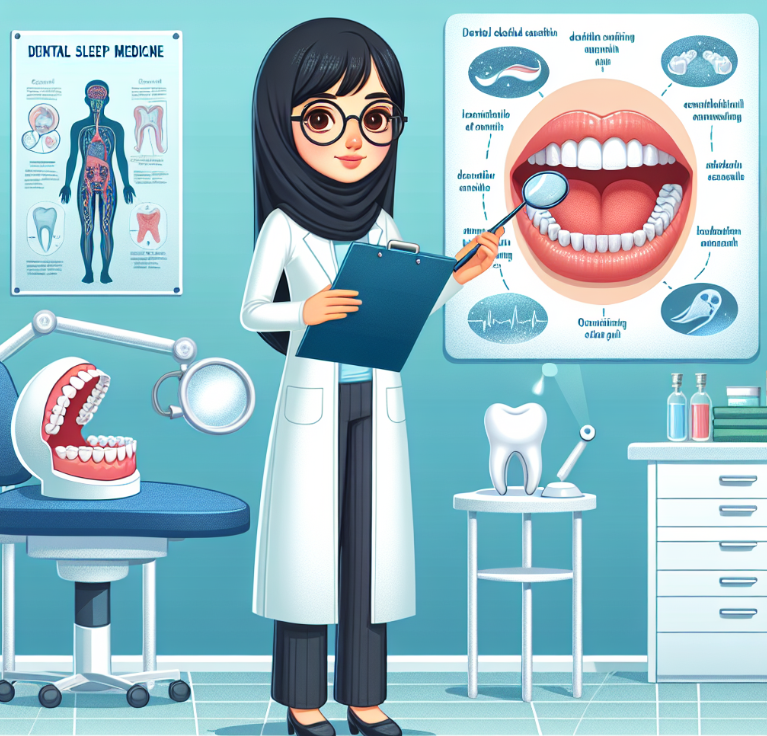
December 7, 2024
In a fast-paced world, the importance of quality sleep cannot be overstated. It is a cornerstone of overall health and wellness, affecting everything from cognitive function to physical vitality. Many individuals suffer from sleep disorders that not only disrupt their nightly rest but also impact their oral health. Dental sleep medicine emerges as a critical field that bridges the gap between sleep disorders and dental care, offering solutions that enhance both sleep quality and oral health.

August 7, 2024
Oral health is a critical aspect of overall well-being that evolves through different stages of life. Each phase, from early childhood to senior years, presents unique challenges and requires specific oral care strategies. Addressing these needs effectively fosters healthy dental practices and can ensure lifelong oral health for families in the North Shore area. This guide provides insight into managing oral health at each critical life stage, reflecting the comprehensive, family-oriented services offered by Stephens Dentistry.
Join Our Elite Dental Family


©2022 Stephens Dentistry. All Rights Reserved.

